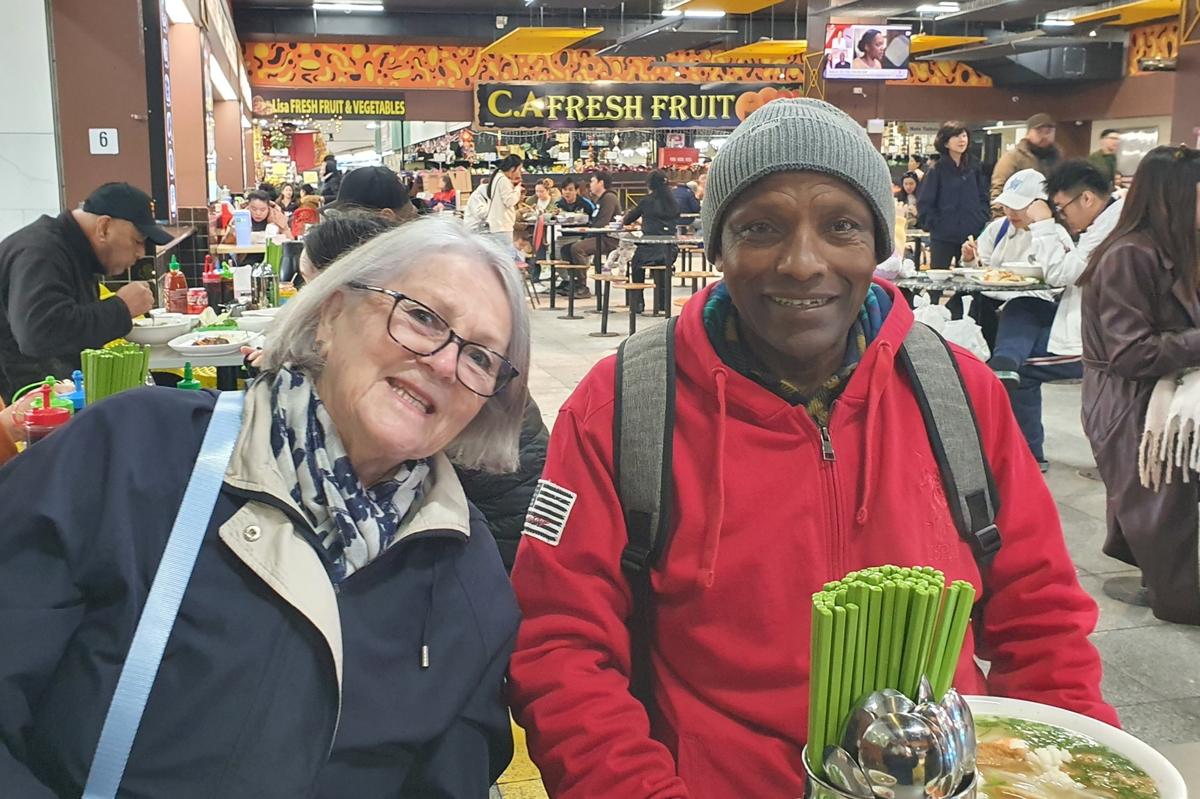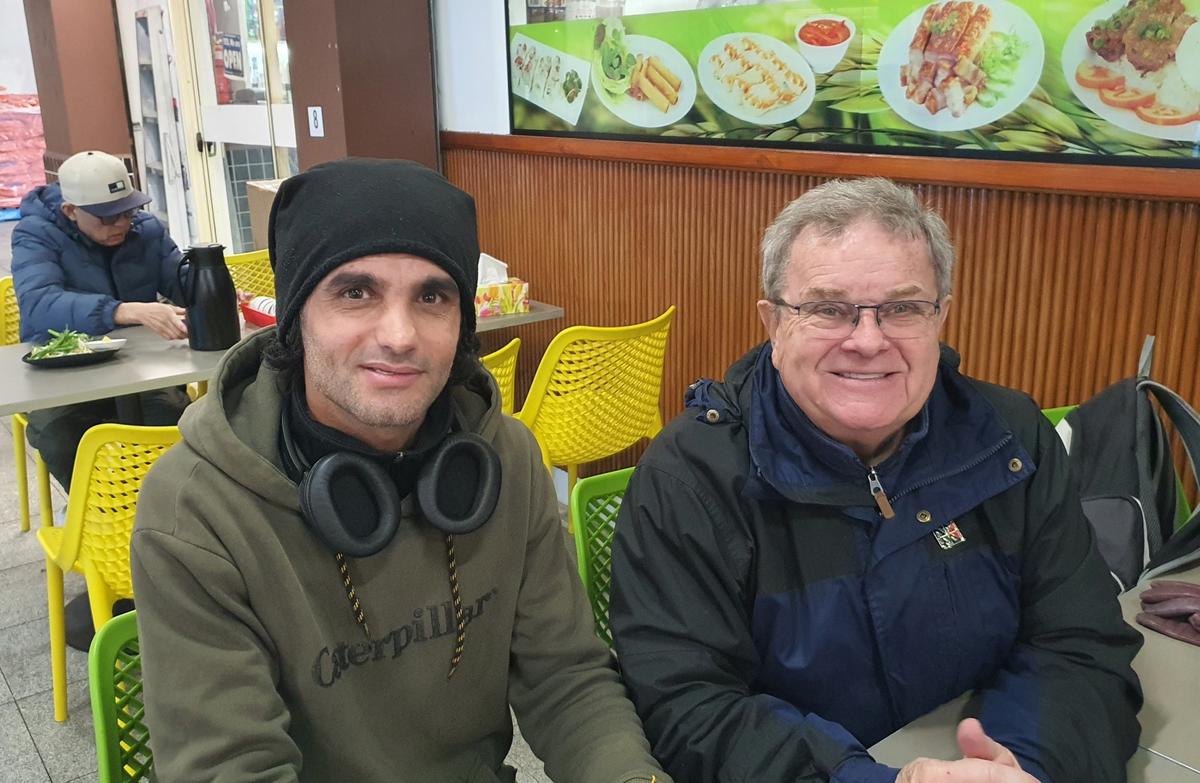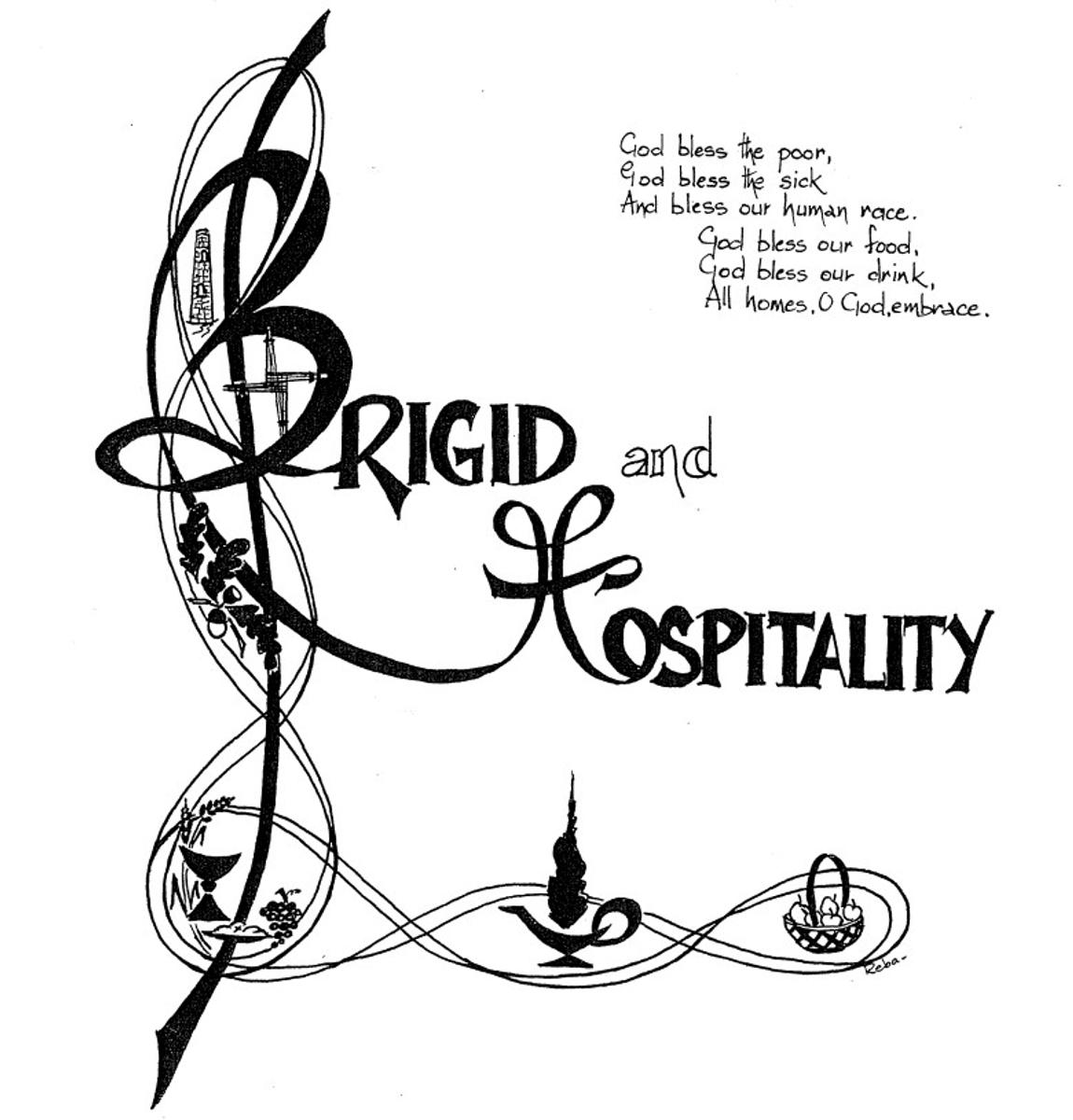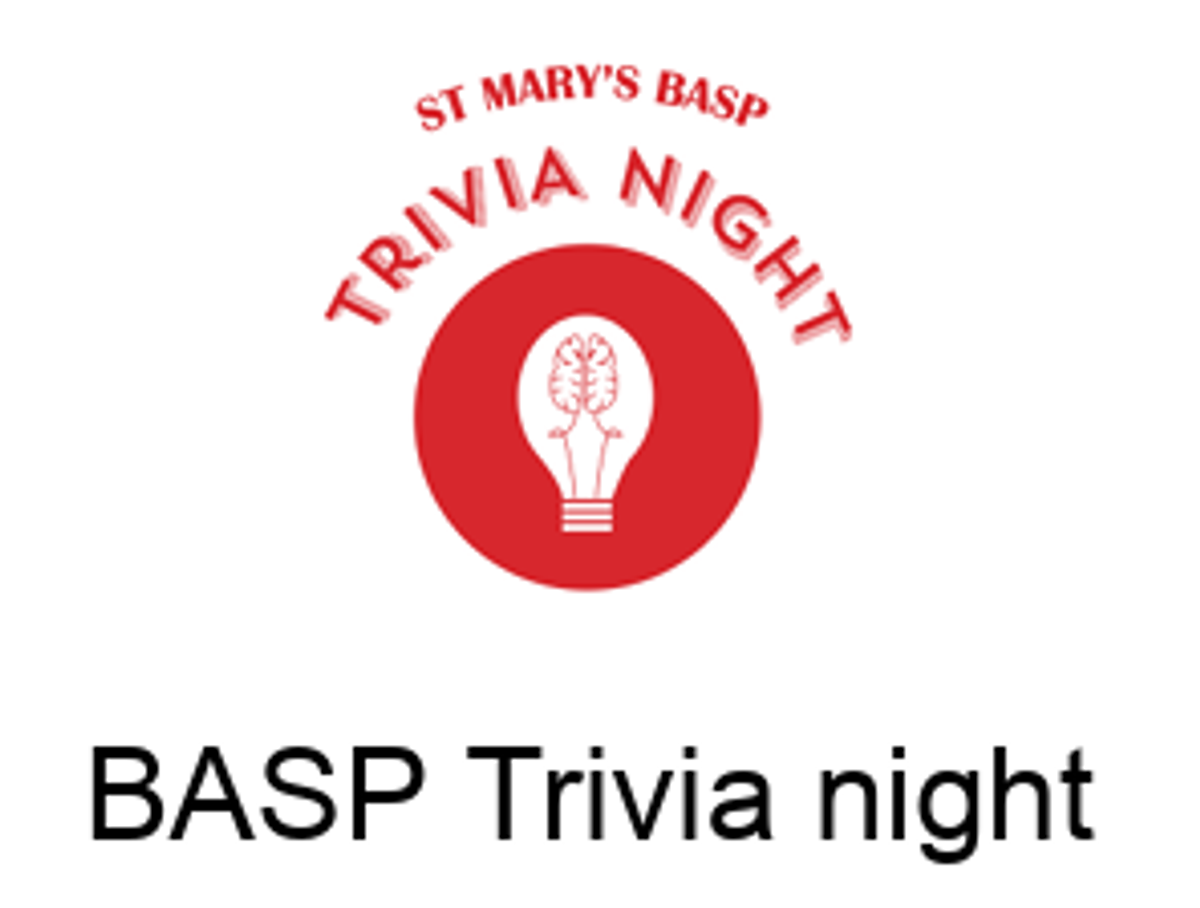Hospitality in action at BASP

The essence of what we do and stand for at BASP is welcoming the stranger, especially the most vulnerable.
The first of our aims is to * provide hospitality and practical support for people seeking asylum. Hospitality could be seen as offering people a cup of tea when they visit. Maybe that’s not a bad place to begin. However, a deep sense of hospitality and welcome is much deeper than this. Ultimately it is about creating a community that breaks down barriers and borders and builds a place of justice and mutual giving and receiving.
Catholic tradition offers both a rich and clear perspective on this issue. It is built on the long Hebrew tradition of extending hospitality to foreigners and other strangers, those on the other side. “You shall also love the stranger, for you were strangers in the land of Egypt" (Deuteronomy 10:18-19).
In particular, the scriptures emphasise the worth of people regarded by society as ‘outsiders’. "Do not neglect to show hospitality to strangers for by doing that some have entertained angels without knowing it," says Hebrews 13. And Jesus says, "when you entertain, here's whom you should invite…the blind and the lame the crippled and the poor …." Luke 14.
In a striking parable, Jesus taught his followers to care for those in need and even identified himself with those people. "I was hungry and you gave me food, I was thirsty and you gave me something to drink, I was a stranger and you welcomed me, I was naked and you gave me clothing, I was sick and you took care of me, I was in prison and you visited me" (Matthew 25:35-36). This is a summary of human neediness.
As we see asylum seekers being rescued by navy ships from sinking boats or marooned in offshore detention centres or denied basic rights of housing, employment and legal representation, we can remind ourselves of the message of this teaching: ‘I am desperate, lonely, ill and isolated. Who will help me?’ The story of the Good Samaritan is a bit dulled by our distance from the reality of Jesus’ time. Samaritans were unclean, to be avoided and not good people. But who looked after the stranger? Not one of their own but this outsider.
A shocking idea!
Hospitality is the inspiration for our BASP way of interacting, from an initial greeting to those who seek our assistance as people seeking asylum, through to staff and volunteer interactions.
The people we work with have not been welcomed or treated with hospitality by government processes. We exist to counter that as much as we can. People may come, for example, to ask for with help with housing or paying bills. We will assist many, but if we cannot help, we try to treat them with respect, discuss alternative options for them and usually offer some food from our pantry. BASP houses an average of 155 people every month and pays the rent for a further 70-80.
Our volunteers demonstrate hospitality in their actions and interactions. Volunteer Alice was asked to support a woman to identify a treat. She chose a massage which helped her chronic pain but which she could never afford. The volunteer could have stopped at that. However, she arranged lunch together, sharing their respective histories of their country and then advocating for the woman’ s family with their MP. She indicated how much she got out of this interaction-in more than just one sense. A real example of being receptive to others.
There’s a similar story with Jim and Sara. Jim has befriended Sara and takes him to the pub for a meal -- who in turn makes and shares his food with Jim. This mutuality ensures shared dignity, rather than a one-way giving.
We try to be real – it is easy to welcome likeable people. The challenge is to also offer real hospitality to those who are Challenging!
There are many legends associated with St Brigid of Kildare. They all depict a woman who risked all to give to the ‘outsiders’ – giving her father’s sword to a beggar, giving away the food ready for a feast for the rich to the poor who had nothing, to offending a well-to-do lady who had just given her a basket of apples to a poor person who was hungry.
Brigid welcomed the stranger
Sister Reba, one of the Brigidine sisters, was Principal at Kilbride College, now the site of BASP. Hospitality was always a value at the school, which took in students who otherwise couldn’t have afforded to come.
Reba also designed the lettering ‘Brigid and Hospitality’, which was used as the cover of a publication called ‘Strength and Gentleness’. It depicts the cross and the flame, the two main symbols of the Brigidines, which stand for St Brigid’s hospitality.
As well as being a symbol of hope, the flame represents the monastery that she established in Kildare. Brigid asked her sisters to keep the fire burning on the roof of the monastery at all times, so that it was an eternal flame that kept burning day and night to show strangers where they would be welcomed and could get help if they needed it.
What does hospitality mean in our world, our country today?
How do we view “the other”?
St Brigid’s cross is taken from the story of the time Brigid helped a chieftain who was very ill and dying, giving him what we now call palliative care. As he asked her about her beliefs and she talked to him about the story of Jesus, when she got to the part about Jesus going through with the crucifixion to show that his life of love and service meant something to him, she is said to have picked up the reeds from the floor of the chieftain’s house and woven the cross from the reeds (which in Ireland are soft and flexible enough to weave, unlike those in Australia).
The cross was a sign of Brigid’s love and service for the sick and dying. It became a symbol of the work of the sisters as they went out to the homes of those who needed care, and you can still see the crosses, along with statues of Brigid, in Ireland.
The basket of apples depicts another story about Brigid. Once, when she was doing her rounds meeting people, a rich woman came to her with a basket of apples and said that they were for her and her sisters. Brigid thanked the woman and took the basket of apples. Then she met someone who was very poor and hungry, and she gave him the basket full of apples. The rich woman saw this and complained that the apples had been for Brigid and her sisters, to which Brigid replied: “What is ours is theirs.”
In the design, you also see the symbols of today’s Eucharist, which are about sharing with whomever is part of the community without judgement, and sharing our belief that the spirit of Jesus is present in some way.
The oak and the Curragh
Why do we see oak leaves in the picture? It is said that in the 5th Century, Brigid planted oaks around the monastery, and they became a sign that this was her monastic area. When the monastery was disbanded under Henry VIII, the trees lived on. Hundreds of years later, the bishop who founded the order of St Brigid took some acorns from the grounds of the present-day St Brigid’s Cathedral to Tullow and planted an oak which still stands today (and which Sister Reba has walked under!).
Another lovely story to end on is this one: When Brigid was setting up her monastery she wanted more land, but when she asked the chieftains in the area to donate land, they refused. She kept asking and wouldn’t give up, until one of them finally said, ‘Okay, enough! You can have as much land as your cloak will cover’. So, what did Brigid do? She threw her cloak, and it landed on the ground and then kept growing and growing until it covered an enormous piece of land. She was able to claim all that land and use it to help those in need. It’s now known as the Curragh and is very rich and fertile.
What an inspiration!
The Australian Churches Refugee Task Force (ACRT) has established a new campaign called #EndTheWaiting. BASP will be hosting a #EndTheWaiting vigil on Wednesday 3 September from 2.00 - 3.00pm at the Brigidine Ministry Centre, 54 Beaconsfield Parade, Albert Park. All are welcome.
St Mary’s Hampton online trivia event in support of BASP is back on Friday 3 October. We aim to provide a fun night for you and your friends and raise money for a good cause, and we’d love your support.
To take part, sign up as a team host, and get your team together for a light-hearted night of trivia and conviviality. Suggested minimum donation of $30 per team member.
When: Friday 3 Oct 7.30pm to 9.40pm
Where: Your place! Invite a group of friends to your home, up to 10 people - small groups are welcome. If you prefer you can form a distributed team in several locations and use our online breakout rooms to talk over your answers.
How: You don't need to be a tech wizard. You need a smartphone, tablet (iPad, Android) or a computer with sound (a webcam would be nice but not essential). You’ll get a link for the Zoom online chat service and use your web browser to answer the trivia questions.
Booking and more information: cohdig.au/trivia
Enquiries: basptrivia@gmail.com





